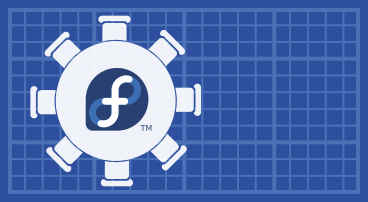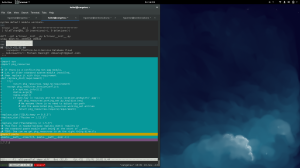This is a part of Fedora Council Elections interviews series. This is an important election, as two candidates will be selected as the Elected Representives, seats which carry full membership in our new top-level leadership and governance body.
Voting is open to all Fedora contributors. The elections starts on November 18th and closes promptly at 00:00 UTC on November 26th.
Please read the responses from all five candidates and make your choices carefully:
- Rex Dieter
- Haïkel Guémar
- Michael Scherer
- Pete Travis
- Langdon White
Feel free to ask questions of the candidates here or elsewhere!
Interview with Haïkel Guémar (number80)
What is your background in Fedora? What have you worked on and what are you doing now?
I started using Fedora around Fedora Core 2 and it has been since my main distro.
I’m a contributor for 8 years now, mostly as a package maintainer and ambassador. Recently, I’ve been involved in the Cloud WG and in the Fedora Board.
What is your vision for Fedora? Where should we be in five years?
Distributions ain’t the cool kid anymore, cloud and mobile computing have taken over the world, so it’s time that we also evolve.
In five years, I want Fedora and its ecosystem become a reference platform for developing/hosting applications.
More unlikely, I would like to see a Fedora-based distro for mobile (tablets, smartphones, etc.) – Fedora everywhere ! – but who knows 🙂
What does it mean for Fedora to be successful? What is “winning” for our project?
As a project, I measure our success in our capacity to influence the world around us.
Though, it’s an interesting metric, I don’t care about how much end-users we have, I care about the vitality of our community, of our ecosystem (ie: our downstream communities).
To measure our success, we’ll need having metrics and analyze them so we could improve ourselves as a project.
Thanks to fedmsg/datanommer/datagrepper, we can watch the whole project pulsing in realtime. We should leverage these data to monitor the project health.
We win when:
- Fedora is a first-choice platform to develop applications, host services
- Fedora influences the direction of GNU/Linux
- our contributors have fun
What are the most pressing issues facing Fedora today? What should we do about them?
Many pain points, among them:
- recruiting new members, not only because we’re understaffed in some areas but also to bring new people with a fresh perspective.
- lack of common vision: in the current context, we need to build a common vision to define where we’re headed.
- More coordination & communication: Fedora has grown big, it has become difficult to set a direction, and many impediments are kept hidden to most of us so we can’t even try to solve them.
What are your interests and experience outside of Fedora? What of those things will help you in this role?
On the professional side, I’m a software engineer like most of us, though I have a degree in electronics.
I’m an activist (diversity, equality of rights, etc.), I was also an elected staff representative but that’s another story.
From my personal experience, I learnt the value of teamwork, the value of ethics and to stand to what you believe is right.
I’m also involved in (too) many technical user groups, organizing a lot of events.
Care to share a screenshot of your Fedora desktop?
Nothing exciting, I use vanilla GNOME Shell and I spend most of the time working in local/remote shells.
I appreciate that GNOME let me work without too much distraction.
Have you used Fedora in a cloud or server context?
As a stakeholder in Fedora Cloud, I use our images in a daily basis be it on a cloud (OpenStack, AWS, etc.) or as a virtualized guests for testing purposes.
All my bare metal machines (personal servers included) are on F21.
I believe in dogfooding, I *do* use Fedora at work since 2009 (development workstation, server, SaaS applications, etc.), and it has proven rock-solid.
This is my own experience, and to mitigate that, in the technology adoption lifecycle, I’m probably somewhere between early adopters and innovators.
As a council member, I want Fedora to be suitable up to early majority, and cooperate with our downstreams to provide something suitable for the majority folks.
Anything else voters should know?
I currently work for Red Hat as maintainer for RDO (Red Hat Distribution of OpenStack which is based on Fedora) since few months.
My commitment to Fedora has no link with my past/current/future employer, and I intend to keep that way.
As a board member, I did my best to hear my fellow contributors and voicing their concerns to the board.
I admit that I was a bit clumsy in doing so, but this was all in good faith and I’m improving myself on that matter.
My email box is always open to any fedora contributors, I’ll listen whatever you want to talk privately.
What did you do on your last vacation or weekend off?
I haven’t taken any vacations for a while.
What do you want to achieve as member of council?
- bring more diversity: gender, ethnicity, age, background, etc.
I want to make more people from diverse backgrounds willing and comfortable to contribute to Fedora. - Identify bottlenecks and pain points and activelXy work to fix them
- More Fun !!
Most of us are volunteers, so it should be fun to participate in Fedora to keep the project sustainable. - More collaboration with our downstream communities and fellow distributions
With Fedora.Next and its 3 flagship products, Fedora embraced its mission as a platform. We need to make it easier using Fedora as a foundation for third-party products (including spins).
How do you envision improving collaboration with downstream communities (ie: CentOS)?
Since CentOS and Red Hat have joined together, we have an unique opportunity to work more closely
with CentOS to collaborate.
We need to share our infrastructure and make it easier to contribute to both projects. We need to build
a consolidated ecosystem while keeping our own identities.
More generally, we need to open up to downstream communities and help them fit the fedora ecosystem.







